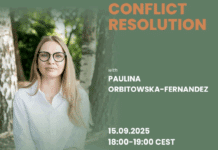Since its launch in 2016 the European Solidarity Corps has created valuable opportunities for young people all over Europe, willing to make a meaningful contribution to society and help show solidarity, through volunteering, traineeships or jobs.
To endorse and enhance the great success of European Solidarity Corps, back in 2018 the European Commission launched a proposal for the 2021-2027 budget period to be discussed among the EU member states. It was a stand-alone programme for Phase 3 of the European Solidarity Corps.
The proposal included:
- Increase the budget for the European Solidarity Corps to €1.26 billion to allow at least 350,000 young people to participate;
- Make the volunteering activities in support of humanitarian aid operations (EU Aid Volunteers scheme) part of the Solidarity Corps.
The evaluating process continued on November 2018, when the Council approved a further discussion of the matter, starting the negotiations with the European Parliament, which effectively began in October 2019.
Now the Council and the European Parliament have just reached a political agreement on the European Solidarity Corps programme for 2021-2027. They agreed a budget of €1.009 billion, covering at least 270k young people engaged in societal and humanitarian challenges as volunteers or by setting up their own solidarity projects.
This means that beyond 2020, the ESC will continue to be a meaningful opportunity for youth, allowing to develop new precious skills and promote the European values of freedom, equality, democracy and human rights. The programme supports the following actions:
- Volunteering in solidarity activities, addressing societal challenges (people aged 18-30), plus
- Humanitarian aid related solidarity actions (people aged 18-35).
The provisional agreement provides also that the implementation of the activities should address unforeseen circumstances such as pandemics, environmental crisis and conflicts. The international organisations, public or private, have access to the programme as long as they received the ESC quality label. The activities are open to the member states, plus third countries when applicable.
Finally, the voluntary solidarity activities may take place in the country other than the country of residence or in-country, especially for young people with fewer opportunities. Concerning the humanitarian aid actions, they may take place in third armed conflict-free countries.
There is still a next and final step: the European Solidarity Corps 2021-2017 programme needs the approval of the Multiannual Framework by the European Parliament and EU member states to turn into force. This is the later stage of the decisional process.
Read also
What’s new in the 2020 annual work programme of Erasmus+?




